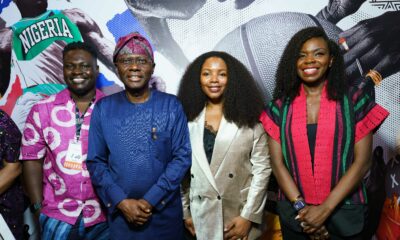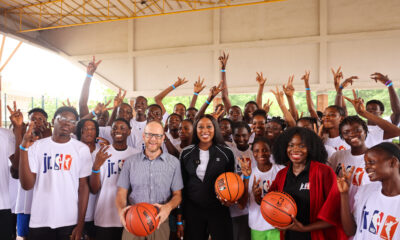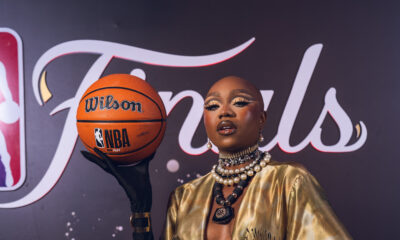Career
Gbemisola Abudu covers TheWill Downtown’s Latest Issue
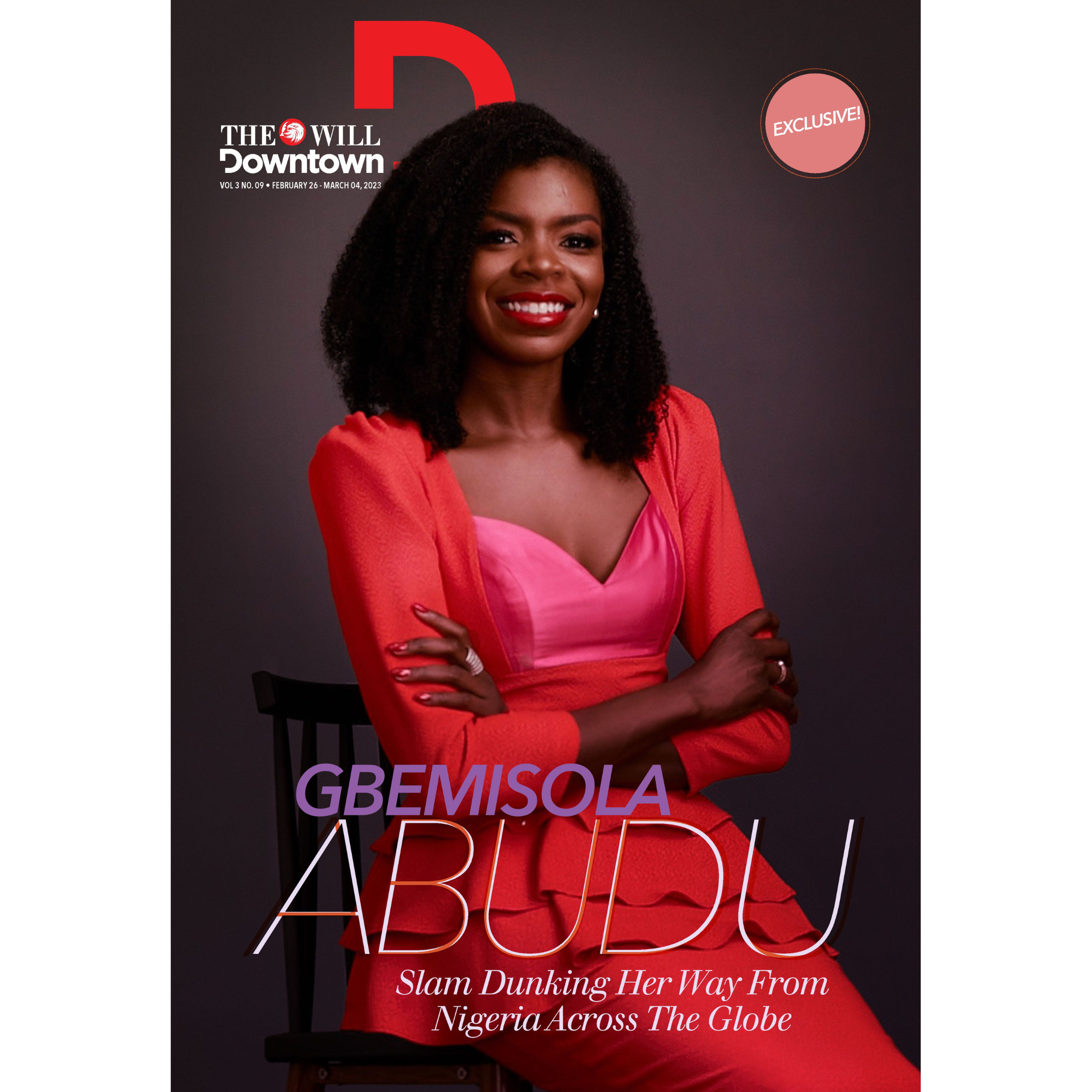
Gbemisola Abudu, NBA Africa’s Vice President and their Country Head in Nigeria, is the latest to grace the cover of TheWill Downtown Magazine.
In this interview with TheWill DOWNTOWN’s Editor, Onah Nwachukwu, Gbemisola talks about her love for basketball, taking inspiration from the late Kobe Bryant, her responsibilities, putting all the right foundational building blocks in place to enable us to build a profitable and sustainable business in Nigeria, her aim for Nigeria, the halftime show everyone is currently talking about, and many more.
See excerpts below:
You were appointed NBA Africa Vice President and Country Head of NBA Nigeria. What was that like for you, considering you had worked with different brands in different industries?
This one was different! This is probably because I am a huge fan of the game and have a strong affinity for the NBA. My love for basketball and the NBA has been with me since secondary school. Interestingly, I never played the game, but I have been a huge spectator of the game for as long as I can remember. I am inspired by the dedication, discipline, and tenacity displayed by basketball players, notably the late Kobe Bryant. His mamba mentality made a significant impression on me growing up and greatly impacted my religiously following the game.
Also, I have basketball to thank for a lot of incredible friendships I have. So, this one differed from every other job because it was deciding to work full-time on one of my passions and hobbies. In addition, what made it extra special was the opportunity to work for a great brand like the NBA at home and utilise the platform to empower our youth and showcase our excellence.
Another reason this was special is over the years, I have had the privilege to watch the growth and influence of the game due to the incredible foundation laid by many over the years.
We are where we are today in Nigeria because of their work and contributions. It felt like the baton had been passed on to me to build on what they had built. Now that I have the baton, it is my responsibility to run my part of this race to the best of my ability and create something sustainable that will stand the test of time.
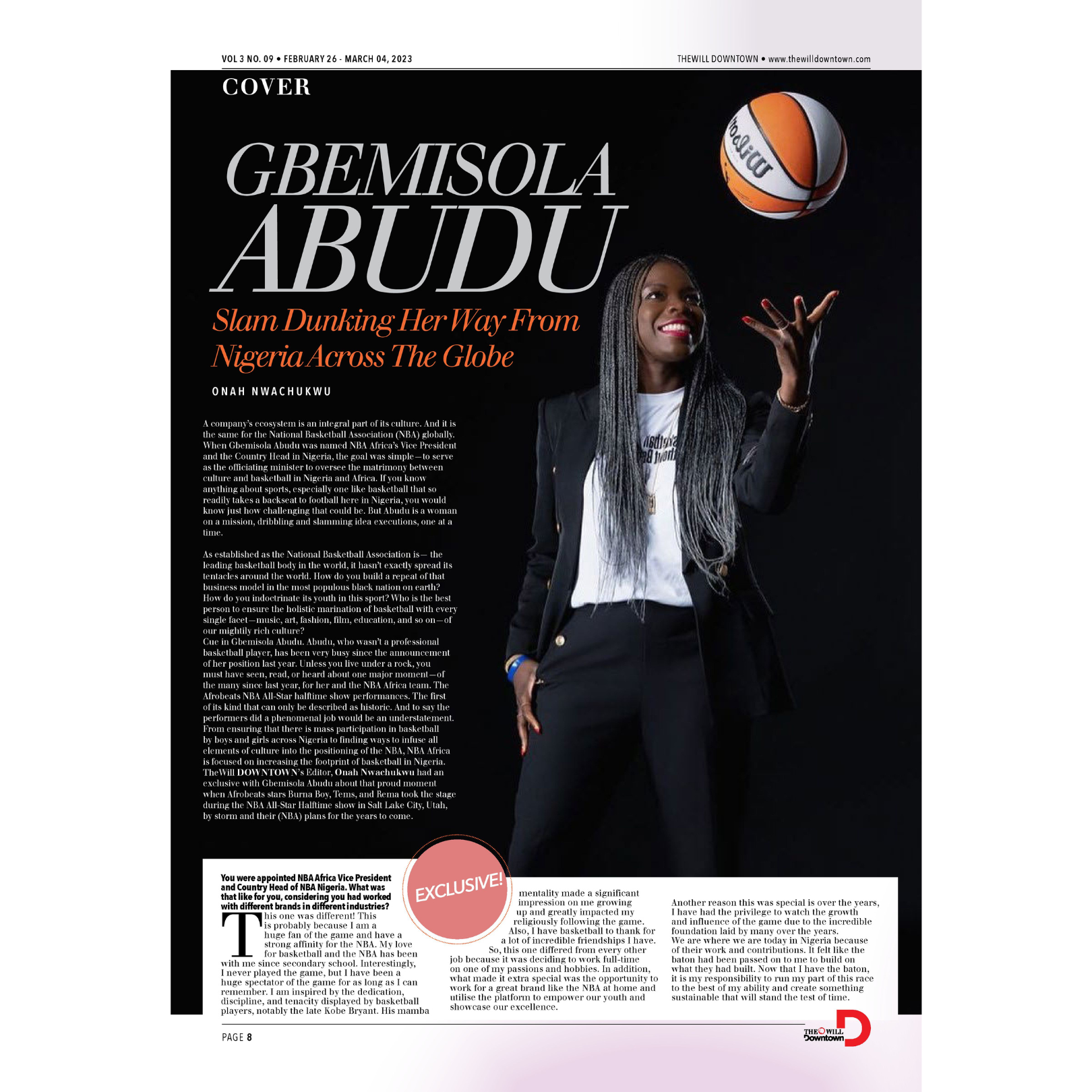
Now, to your accolades, so to speak, it’s been a year, and in such a short amount of time, you’ve managed to do a couple of things; let’s talk about them. You created a partnership with Hennessey, and there was a floating basketball court. What conceived that idea? I don’t think it’s ever been done in Nigeria.
I can’t take credit for that. I am someone who always ascribes credit where it’s due. The floating court was already in the works when I came on board. It was the first project I worked on with the team, but much of the heavy lifting was done before I came on board. Regarding Hennessy, we have a global partnership with them which extends to our engagement with their brand in Nigeria.
The floating court was part of one of our joint initiatives called the Court Beyond Limits series.
The series was designed to honour the NBA’s 75th Anniversary Season, where first-of-their-kind basketball courts were unveiled in unique locations globally. For Nigeria, we unveiled a floating basketball court by the Lekki-Ikoyi bridge. It was the first in Africa and has since been replicated in other parts of the world.
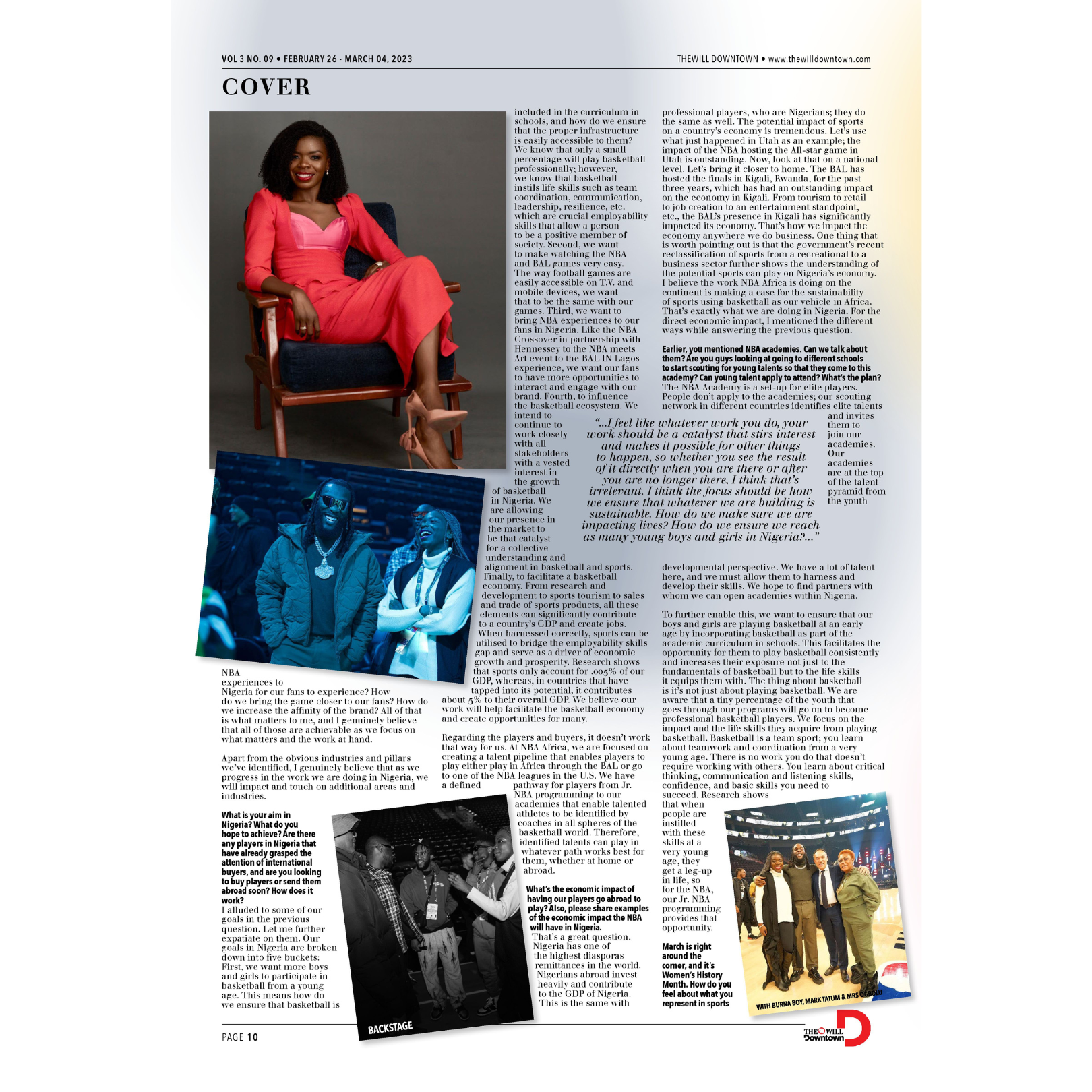
What is your aim in Nigeria? What do you hope to achieve? Are there any players in Nigeria that have already grasped the attention of international buyers, and are you looking to buy players or send them abroad soon? How does it work?
I alluded to some of our goals in the previous question. Let me further expatiate on them. Our goals in Nigeria are broken down into five buckets: First, we want more boys and girls to participate in basketball from a young age. This means how do we ensure that basketball is included in the curriculum in schools, and how do we ensure that the proper infrastructure is easily accessible to them?
We know that only a small percentage will play basketball professionally; however, we know that basketball instils life skills such as team coordination, communication, leadership, resilience, etc. which are crucial employability skills that allow a person to be a positive member of society. Second, we want to make watching the NBA and BAL games very easy.
The way football games are easily accessible on T.V. and mobile devices, we want that to be the same with our games. Third, we want to bring NBA experiences to our fans in Nigeria. Like the NBA Crossover in partnership with Hennessey to the NBA meets Art event to the BAL IN Lagos experience, we want our fans to have more opportunities to interact and engage with our brand. Fourth, to influence the basketball ecosystem. We intend to continue to work closely with all stakeholders with a vested interest in the growth of basketball in Nigeria. We are allowing our presence in the market to be that catalyst for a collective understanding and alignment in basketball and sports.
Finally, to facilitate a basketball economy. From research and development to sports tourism to sales and trade of sports products, all these elements can significantly contribute to a country’s GDP and create jobs.
When harnessed correctly, sports can be utilised to bridge the employability skills gap and serve as a driver of economic growth and prosperity. Research shows that sports only account for .005% of our GDP, whereas, in countries that have tapped into its potential, it contributes about 5% to their overall GDP. We believe our work will help facilitate the basketball economy and create opportunities for many.
Regarding the players and buyers, it doesn’t work that way for us. At NBA Africa, we are focused on creating a talent pipeline that enables players to play either play in Africa through the BAL or go to one of the NBA leagues in the U.S. We have a defined pathway for players from Jr.
NBA programming to our academies that enable talented athletes to be identified by coaches in all spheres of the basketball world. Therefore, identified talents can play in whatever path works best for them, whether at home or abroad.
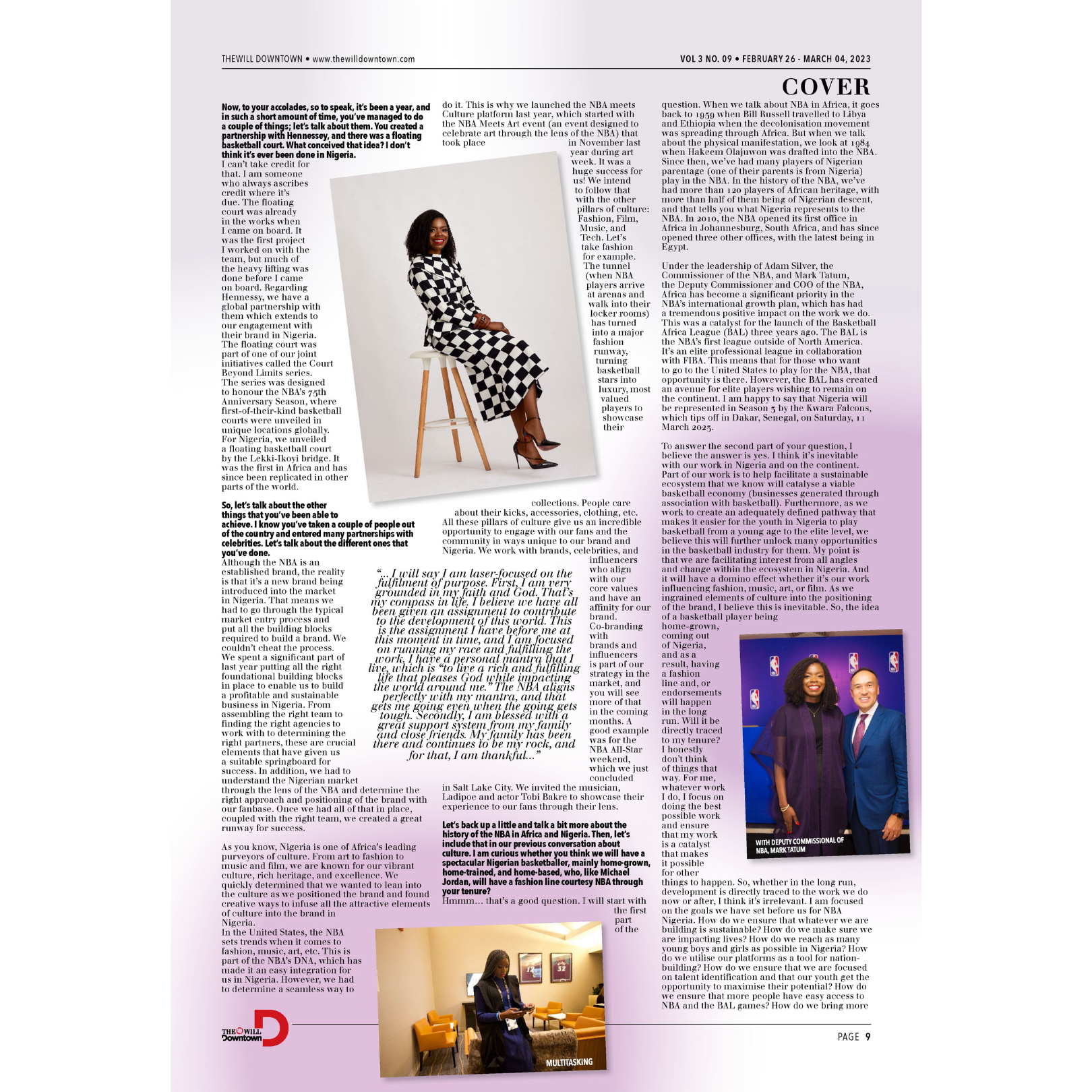
Read the full interview here.


